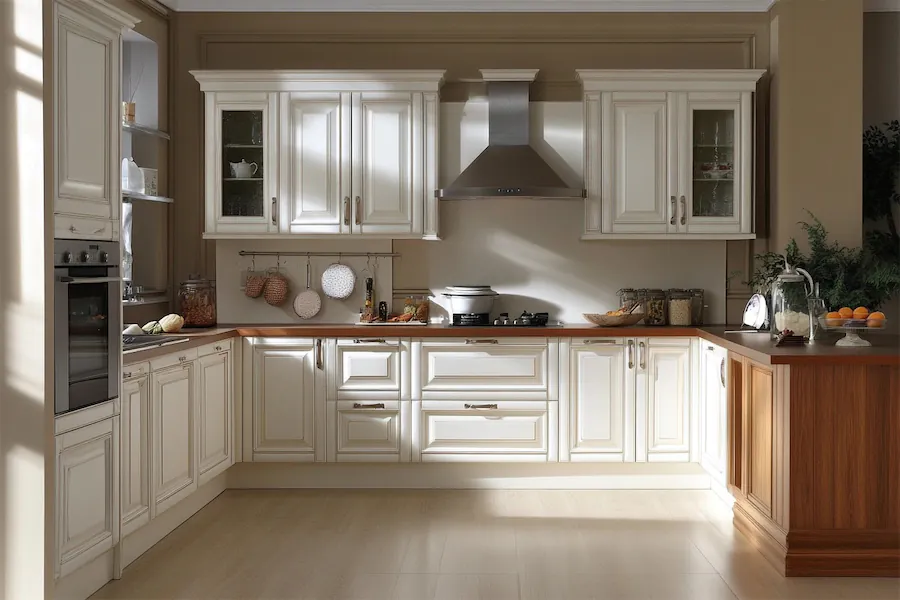A modular kitchen is a modern design concept that utilizes pre-fabricated cabinet modules or units, allowing for flexible configuration and customization to suit individual needs and space constraints. This approach combines functionality with aesthetics, resulting in efficient and stylish kitchen spaces.
History and Origins of Modular Kitchens
The evolution of modular kitchens can be traced back to the early 20th century. In 1926, Austrian architect Margarete Schütte-Lihotzky introduced the Frankfurt Kitchen, a pioneering design that emphasized efficiency and standardized layouts, laying the groundwork for modern modular kitchen concepts.
The term “modular kitchen” gained prominence in the 1960s with the introduction of designs like the “Gloria” kitchen in 1961, which featured pre-fabricated units that could be assembled in various configurations.
Key Features of Modular Kitchens
- Customization: Modular kitchens offer a high degree of customization, allowing homeowners to select layouts, materials, colors, and finishes that align with their preferences and space requirements.
- Space Optimization: The modular design maximizes available space, incorporating efficient storage solutions such as pull-out shelves, corner units, and specialized compartments to enhance organization.
- Ease of Installation and Maintenance: Pre-fabricated modules facilitate quick installation and can be easily dismantled for repairs or relocation, offering convenience and flexibility.
- Modern Aesthetics: Sleek designs with clean lines, contemporary materials, and innovative hardware contribute to the modern appeal of modular kitchens.
Applications of Modular Kitchens
- Urban Apartments: Ideal for city dwellings where space is limited, modular kitchens provide efficient layouts that make the most of compact areas.
- Custom Homes: In larger residences, modular kitchens can be tailored to specific design themes and functional requirements, integrating seamlessly with the overall interior design.
- Renovations: For remodeling projects, modular kitchens offer a practical solution to update outdated spaces with modern amenities and styles.
Considerations When Choosing a Modular Kitchen
- Budget: While modular kitchens can be cost-effective, prices vary based on materials, finishes, and customization levels. It’s essential to establish a budget that balances quality and affordability.
- Material Selection: Choosing durable and easy-to-maintain materials ensures longevity and sustains the kitchen’s appearance over time.
- Layout Planning: Assessing the available space and determining the optimal layout—such as L-shaped, U-shaped, or island configurations—enhances functionality and workflow.
- Future Needs: Anticipating potential changes, such as family growth or evolving cooking habits, can inform decisions on storage capacity and appliance integration.
Conclusion
Modular kitchens represent a fusion of efficiency, customization, and modern design, catering to diverse needs and preferences. By considering factors like budget, materials, and layout, homeowners can create a kitchen space that is both functional and aesthetically pleasing, reflecting contemporary living standards.
